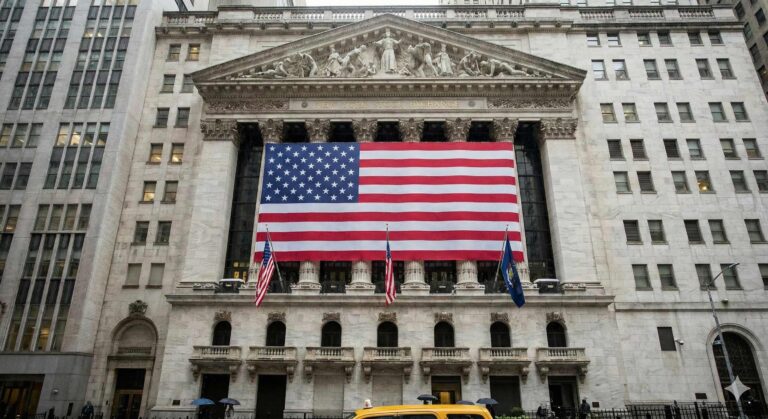What follows is part article and part photo essay. We trust that’s groovy.
During the weekend of the Berkshire Hathaway 2023 Annual Meeting in Omaha – in which 40,000 blazer-and-jeans wearing investors (well, many of them; it’s the closest thing to a Berkshire uniform for the fellas) descend on normally sleepy Omaha for the Berkshire meeting itself, but also for the slew of subsidiary meetings held by companies, universities, investing clubs, and random private individuals looking to mingle.
Sina Finance is the largest financial platform in China and, besides peppering the Omaha airport with its advertising – it’s said that 20% of the Berkshire attendees are visitors from China, so Chinese-language ads in the airport aren’t as out-of-place as they sound – it’s known for hosting wonderful conferences in Omaha.

Sina’s events are frequented by higher-end investors as well as business dignitaries from the Middle Kingdom. I’ve been invited as a speaker before, and had the honor of speaking again – on the topic of value investing in a market like China, with a nod to any Berkshire and Buffett-esque angles.

Anyone who’s given a talk that’s interpreted into another language knows that interpreted talks take twice as long and deliver information at half the speed of native ones, making it incredibly easy to bore the audience if you don’t keep things snappy.
I started by asking who in the audience considered himself or herself a value investor. About half the hands went up.
In one sense, this is heartening, because Chinese investors trade more frequently than any other investors in the world – India is #2 – so this room was undoubtedly more value-dense than a general sample of Chinese investors would be. On the other hand, I wondered: Sitting before me were several hundred people with the means, time and desire to fly to the world’s premier value investing event – and only half are value investors?
Why is value investing good?
You may be wondering why adding more value investing to a place like China is a goal. First of all, “fundamentals-based” or “fundamental” would be better verbiage than “value” – in pure deep value investing, investors seek crappy companies that are trading for even crappier prices, whereas “fundamental” more broadly encompasses reviewing cash flows, strategy, management, and many other Buffet-y things, and stands in opposition to investing styles like quant, macro, stat arb, and others whose value added to humanity is more questionable.
And that’s really my answer: A capital market is at its best when it channels money from investors into good companies and away from bad companies. The more a market is a casino, the less this discriminatory benefit helps society. And unless you’re talking about stock options, volatility reduces value – if you could choose between a guaranteed $10 tomorrow and a value in between, say, $9 and $11 (normally distributed), you would, if you were a strict finance type, insist that the midpoint of that range be just a bit higher than $10 to compensate you for the added uncertainty.
Anyway, “value” (fundamental) investors help society by carefully studying individual companies before allocating capital to the good ones and keeping it away from the bad ones.
How can a country get more value investors?
I my efforts to be brief and squeeze in a Buffett connection, I probably oversimplified, but I said that if we look at the US in parallel – and by the way, if you’re aware of academic studies on behavioral finance, you know that the US, despite being the world’s most mature and advanced investing market, is nowhere near perfection – two factors may stand out:
- Regulation: Prior to the 1929 crash, America’s stock markets were more akin to China’s, with insider trading, excessive leverage, poor and uneven information flow, wild price swings. These problems have not been removed, but the Securities Act of 1933 and the Securities Exchange Act of 1934 were significant steps forward in establishing a trusted regulatory framework, not to mention the SEC itself. Enforcement is the other wing of the regulatory bird, and it’s not perfect here, but is even less perfect in many other markets.
- Warren Buffetts: There’s only one Warren Buffett, but shining examples of people who’ve succeeded by investing based on fundamentals are vitally important for giving the investors in a country real-life examples to follow and believe in. Buffett didn’t singlehandedly blaze this trail for American value investors, but he did blaze a lot of it.
These factors work together to make an ecosystem. Chinese companies used to avoid taking calls from analysts asking detailed questions. But if enough investors do this, it becomes the norm – the start of the flywheel – and avoiding questions becomes abnormal, if not looked down upon. That’s good.
But, as I noticed when I lived in Asia and traveled between developed and developing countries in close succession, social buy-in is a tricky game theory thing.
Drivers in places like China, Thailand, and the Philippines – where there’s a tendency to swarm or cut the line, versus maintaining an orderly queue – were fully aware that swarming slowed everyone down. But to a man, they’d all say that if they didn’t participate, everyone else would cut in front of them.
Humans want the benefit of orderly roads. Humans want the benefit of orderly capital markets. But nobody wants to be the sucker who trust-falls first and hits the ground.
I think regulation – statute plus enforcement – is likely to be the most successful ante in fostering a value investing-ish market, whether in China or anywhere else.
James
p.s. I’m a non-drinker, but still thankful to distillery Anhui Gujing, whose swill (52% alcohol by volume) was graciously awarded to the evening’s speakers, myself included, after our talks. I ended up holding a bottle in a few “ads” as well – this time, in Berkshire uniform.
















